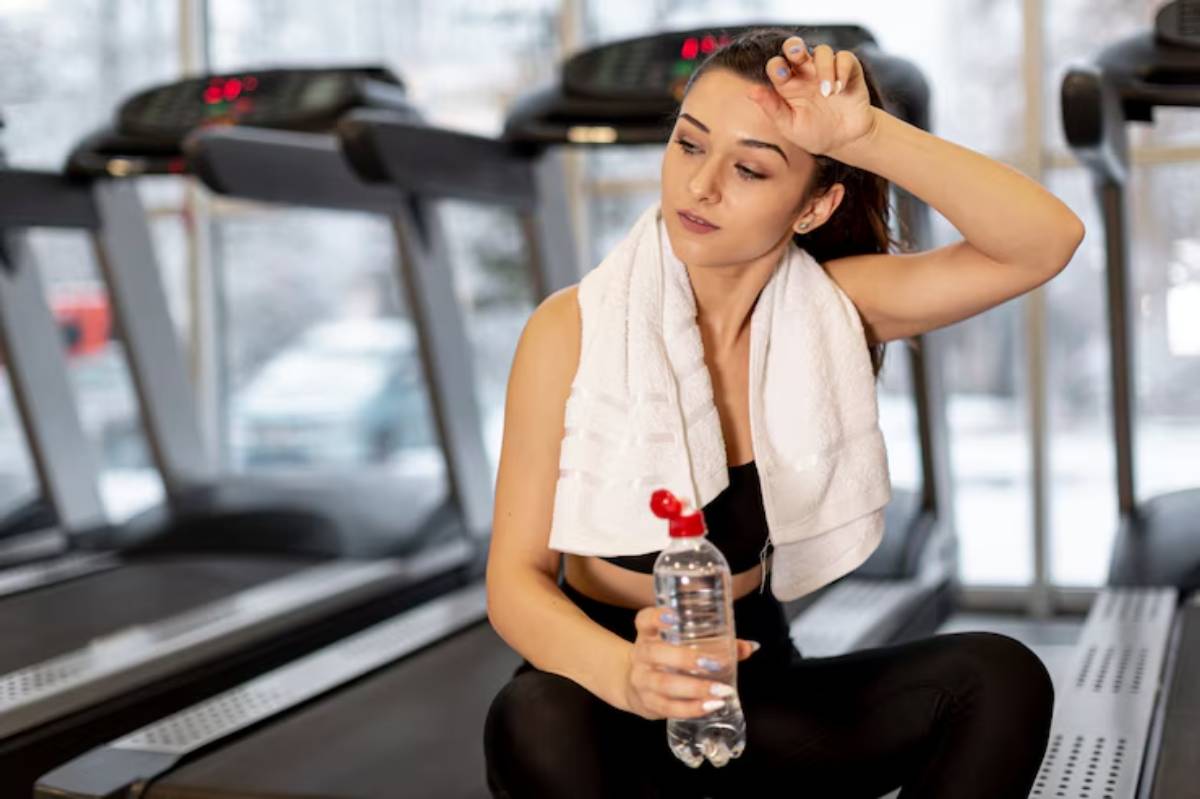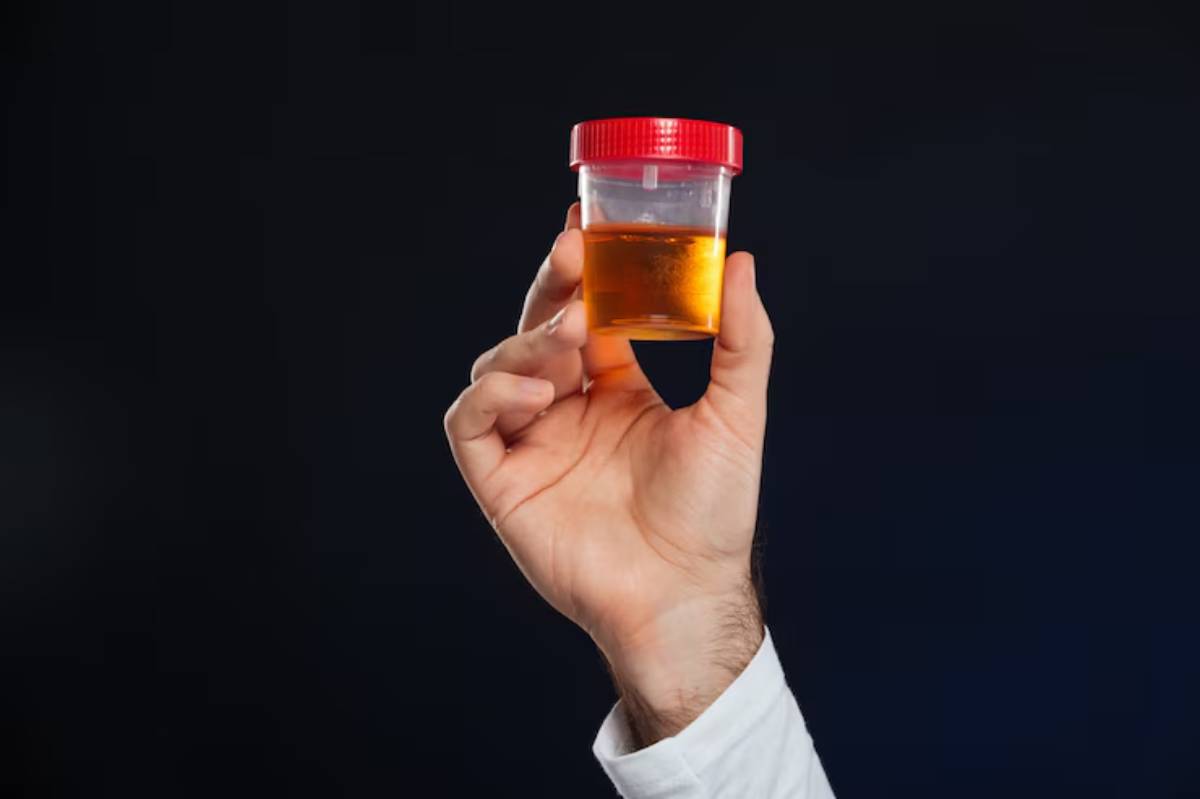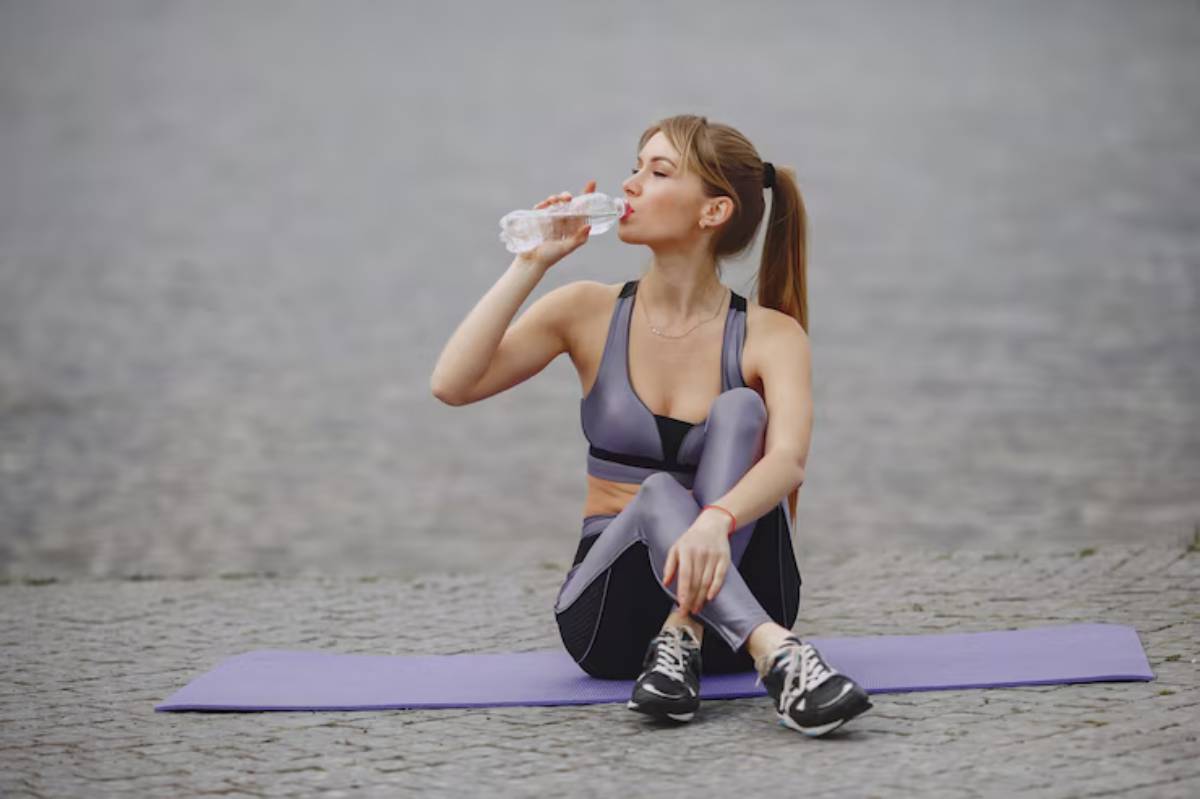
Dehydration Warning Signs Before the Gym
You’ve prepped your playlist, packed your gym bag, and laced up your trainers — but have you checked in with your hydration?
Dehydration and performance go hand in hand, and not in a good way. Missing the signs that you’re under-hydrated before a workout can set you up for a sluggish, inefficient session — or worse, put you at risk for dizziness, cramps, and fatigue.
In this guide, we’ll help you spot the dehydration warning signs before the gym, offer practical fluid intake tips, and reveal the true impact of water on your workout water needs.
Hydration might just be the secret weapon you’ve been missing — let’s dive in!
Why Hydration Matters for Workout Performance
Water isn’t just a backdrop — it plays a starring role in:
- Regulating body temperature
- Transporting nutrients and oxygen to muscles
- Joint lubrication and injury prevention
- Maintaining mental focus and reaction times
Quick Fact: Losing even a small percentage, just 1-2%, of your body weight due to fluid loss can lead to a considerable decline in your exercise performance. This decrease can affect endurance, strength, and overall physical capabilities, making it crucial for athletes and active individuals to stay adequately hydrated
Bottom Line: Hydration is not merely a choice; it is a vital necessity for anyone looking to maintain optimal performance and well-being.
Dehydration Warning Signs Before the Gym
Here’s what to look out for before stepping onto the treadmill or into the squat rack.
1. Thirst
It’s an obvious signal — but if you’re feeling thirsty, you’re already slightly dehydrated.
Tip: Aim to stay ahead of thirst by sipping water regularly through the day.
2. Dark Urine

Clear to pale yellow? You’re good. Dark yellow or amber? Time to hydrate, fast.
3. Dry Mouth and Lips
Reduced saliva production is a classic sign your body is trying to conserve water.
4. Fatigue or Dizziness
Feeling sluggish before you’ve even started? Dehydration hampers blood flow and oxygen delivery to your muscles.
5. Headache
Even mild dehydration can cause brain tissue to temporarily contract, leading to that familiar pre-workout pounding.
How Dehydration Impacts Gym Performance
- Reduced Endurance: Quicker burnout during cardio and circuits.
- Decreased Strength: Lower 1RM (one-rep max) outputs.
- Increased Risk of Cramping: Electrolyte imbalances from fluid loss.
- Cognitive Slowness: Poor focus during complex lifts or routines.
Real-World Example: Imagine trying to deadlift 120kg when your muscles are under-fuelled with fluid. Not only will you struggle, but your risk of injury skyrockets.
Fluid Intake Tips: Hydrating Like a Pro
Time
Action
2-3 hours before workout
Drink 400-600ml of water
20-30 minutes before workout
Top up with 200-300ml
During workout
Sip 150-250ml every 15-20 minutes
Golden Rule: Sip, don’t chug. Gulping large volumes can cause bloating and discomfort.
Explore: Ultimate Fluid Intake Strategy for Athletes
Best Drinks to Meet Your Workout Water Needs
Plain Water
- Perfect for short sessions (≤60 minutes) and moderate exertion.
Coconut Water

- Natural electrolytes; ideal for hot weather or sweaty sessions.
Electrolyte-Enhanced Waters
- Great for endurance or high-intensity workouts over 60 minutes.
DIY Electrolyte Solution
- Water + pinch of sea salt + lemon = budget-friendly hydration booster.
Pro Tip: Avoid sugary sodas and high-caffeine energy drinks right before workouts.
Special Hydration Considerations
For Heavy Sweaters
- You may need more fluids and a sodium top-up.
For Morning Workouts
- Overnight fasting dehydrates you. Prioritise morning hydration.
For High-Intensity Workouts
- Higher fluid turnover demands proactive drinking, not reactive sipping.
Common Hydration Mistakes to Avoid
- Waiting until you’re thirsty
- Overdrinking immediately before training
- Relying only on water for long, sweaty sessions
- Overlooking Urine Colour Indicators
Maintaining proper hydration is an ongoing practice, not just something to consider before hitting the gym. Regularly monitor your urine colour to gauge hydration levels, ensuring you consistently drink water throughout the day. Adequate hydration supports overall health and performance, making it essential to prioritise this habit beyond workout preparation.
Real-World Success Stories
Sarah’s Spin Class Win: Sarah struggled through her 45-minute spin classes until she focused on hydrating 2 hours beforehand. The improvement in her stamina was immediate.
Tom’s Powerlifting Boost: Tom added a pinch of salt to his pre-workout drink during heavy lifting cycles and noticed a marked reduction in mid-session fatigue.
Lesson: Hydration transforms performance — it’s that simple.
Myth Busting: Dehydration and Performance
1. “Drinking lots right before training solves dehydration.”
Reality: Effective hydration starts hours earlier, not minutes before.
2. “Only athletes need to worry about dehydration.”
Reality: Anyone exercising can suffer impaired performance from fluid loss.
3. “Energy drinks are good for hydration.”
Reality: Many energy drinks are diuretics; they worsen dehydration.
Key Takeaways:
- Start hydrating 2-3 hours before exercise.
- Watch for thirst, dark urine, dry mouth, and headaches.
- Personalise fluid intake based on your body’s sweat rate and workout type.
- Think of hydration as essential workout prep, not an afterthought.
Hydrate to Elevate Your Workout

Next time you walk into the gym, be honest — are you truly hydrated?
Spotting dehydration warning signs before the gym, applying smart fluid intake tips, and honouring your workout water needs can elevate every squat, sprint, and session.
Now it’s your turn! How do you manage hydration before workouts? Any favourite hacks? Share your tips in the comments — let’s build a stronger, smarter fitness community together!